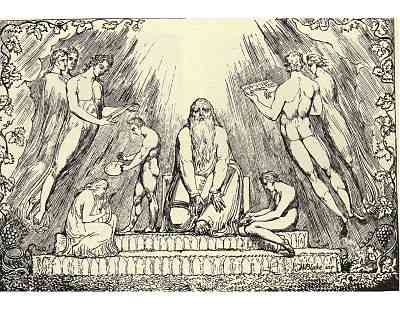Once I had a customer return a computer to the store where I worked. She was very frustrated and wanted her money back. Why? The battery on the computer was broken and would not power the computer.
She was the owner of a desktop and had read a good bit about her computer before purchasing. She had learned that there was a CMOS battery in the machine. This was more than most of my customers knew, but sadly for her, the assumption that the tiny battery would power her large desktop was erroneous.
She needed to plug it into the wall.
She kept the computer and left happy with her machine. Notice that the machine never changed. The computer always was keeping time (thanks to the CMOS battery) but waiting for her to follow the proper instruction and plug the thing into an outlet.
She was not ignorant; in fact, she knew more than most of my users. She just lacked one, oddly huge, piece of knowledge. When she gained this knowledge, she changed and so her attitude toward the computer changed and, even more importantly, the goodness of the computer to her also changed.
The “piece of junk” of yesterday, became the powerful machine of today. The computer never changed.
God is so Good that Goodness is Pervasive.
So it is with every human creation: each contains fragments of the goodness of God, if only because the artistic effort exists. Given time and effort, no art is so bad that we could not find some trace of the goodness, beauty, or truth of God in that art.
That does not mean that I should make the effort with every piece of art. My film friends say Triumph of the Will contains much film beauty, but I cannot stomach the evil. Some art plays on my weaknesses and so is inappropriate for me. Other art is not worth the effort given my limited time: I have yet to master all of Shakespeare to my satisfaction!
We err when we focus on the bad instead of the goodness of God. For example, if I must read a book, then I look first for what is inspired in the text and only later look for what is wrong. There will be something wrong because all of us are broken and all our artistic children are broken too. The David is gloriously inspired and inspiring, but I am sure an expert could find the flaws.
This brings me to a question from my summer interlocutor M*:
14. If the Bible is divinely inspired, why do you think that many books, particularly ones in the New Testament, reference books that are not inspired and come from non-canonical books, etc. It would seem if someone is writing a book under the inspiration of God, they would not quote uninspired books in their books.
There is Nothing that Love Cannot Redeem.
I would expect a divinely inspired book to be utterly free to quote any text, because of a perfection in weeding out the error and in finding the good. How glorious is this liberty!
The Holy Spirit enabled the collector of the Proverbs to look at the glorious wisdom of the Egyptian sages and weed out the bad and preserve the good. The New Testament writers could look at writings that told tales of God, God’s prophets, and God’s word and find the truth.
Imagine writing, reflecting on all you had read, and having what was gloriously true leap out to you! Imagine a dialectic with the Holy Spirit that during that period of composition marked every text with a Holy Spirit highlighter. Errors became obvious, while the truth is shown out on the page. Paul could quote a pagan Stoic with no fear. John could echo the language (if not the ideas) of Heraclitus with no worries.
The Devils Do What they Can, but God Brings Good.
God created everything and declared everything good. There is nothing that exists that is wholly evil, not even Satan. Because God loves creation, He is constantly reaching out in grace to everyone, sustaining everything, and turning all to good that He can.
The Satan is God’s Satan (see the book of Job). There is nothing that will not be made fit in the fulness of the Kingdom of God. The very justice of damnation will be a severe, beautiful mercy.
Of course, I am personally thankful that God chose this path because it opens so many possibilities to my students and to me. If Paul used the pagans, then perhaps we can!
Everything that is good, true, and beautiful wherever it may be found is ours to enjoy. This is so liberating, so exciting, so full of intellectual possibilities that I want to sing, shout, or dance.
Since I am finishing this on a plane, I shall refrain, but I am smiling, M*, and opening up Republic. Lord, teach me the words of your servant Plato.
——————
*M is a non-Christian that sent me 55 questions earlier this year. He has asked that I not reveal his or her name. I will write as if “he” is a male, but this is for convenience. I do not know if I will get to all his questions. I try to limit my answers to hundreds and not thousands of words. Here are questions 1, 2, 3, 6, 7, 8, 12, 14, 17, 19, 23, 26, 27, 28, 33, 34, 35, 37, 38, 39, 40, 44, 47, 54 , and 55.
The post was edited by Rachel Motte.












